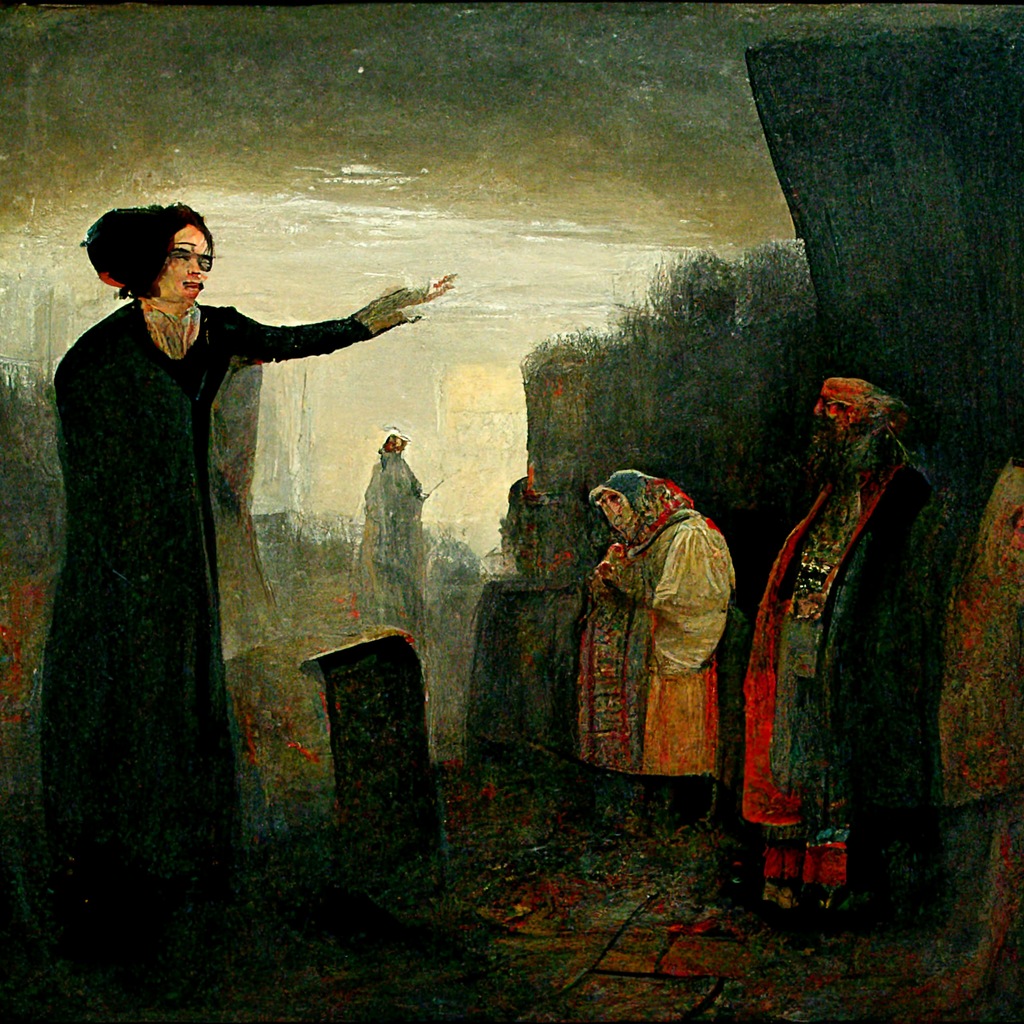
“Olga Tokarczuk preaches to the prophet Jacob Frank”, AI art created with Midjourney
Now when everyone says this is Olga Tokarczuk’s Magnum Opus I can chime in with: Oh yes, definitely, or let’s just call it masterpiece. I panned “Drive Your Plow over the Bonbes of the Dead” as near unreadable, since her militant naive animal rights activism took over and took over the writing. But I definitely wanted to try again, since that writing style is just so amazing, and all its strength come out in “The Books of Jacob”. So that I finish this book, which is of the most unlikely topics for me to be interested in, and think – what over already – is a testament to its greatness. Normally, just a paragraph of religion makes me want to quit a book, but this one is chock full of it. But, also seeing as Olga Tokarczuk is an atheist/feminist, it subtely exposes its absurdities. This book is about many things, but all are not being pontificated on, but hidden in the subtext, narrated from lots of different perspectives. There definitely are themes of the absurdity of religion, how self-proclaimed (are there any others?) prophets actually just lust after women and girls, how cults spread; but also what life was in the 1700s in Europe, the full history, but with a focus on antisemitism. There are lots of comparisons that come to my mind -Gabriel García Márquez “Hundred Years of Solitude” in touches of magical realism (but with a purpose, more like Toni Morrison’s “Beloved”), but also so many characters that have similar names, and change names multiple times each (while they move through different religions). Neal Stephenson’s Baroque Cycle, in historical narrative told in vignettes happening to the characters, and where the big things never happen immediately on the page; and a definite overall humurous undercurrent (in Tokarczuk’s writing, Stephenson of course is on the nose). There’s following a tradition of great woman writers, Doris Lessing say, in taking great care in the handling of their characters and strong feminist informedness. But I namedrop more to come to one conclusion – that Tokarczuk is one of only very few authors that are completely their own art, and please hand me any future author that you feel like namedropping Tokarczuk for.
Lastly, the main criticism that the story is so outlandish is absolutely countered by the fact that it is an actual, well researched, historical account.